On July 20, 1969, U.S. astronauts Neil Armstrong and Buzz Aldrin climbed down out of the Apollo Lunar Excursion Module and became the first men to set foot on the surface of the moon. Buzz is the son of Clark graduate Edwin Eugene Aldrin Sr., class of 1915, who cultivated a friendship with his Clark physics professor — and rocket inventor — Robert Goddard.
From Clark to the Moon

Father of the Space Age
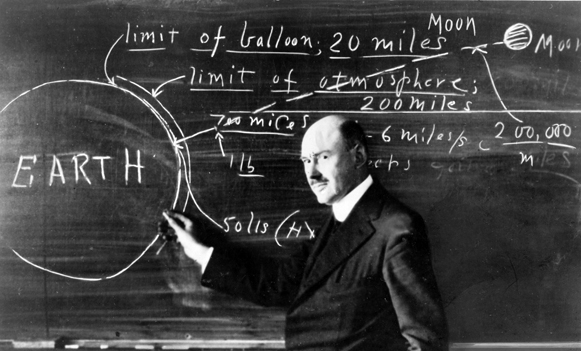
Robert Goddard, M.A. 1910, Ph.D. 1911, taught physics at Clark University while developing the liquid-fueled rocket that made space exploration possible. Explore more than 48,000 scans of documents created by or about Dr. Goddard, including his diaries, scientific notebooks, patents, and related news clippings, in our Goddard Digital Collection. Clark’s archives also contain film footage of Goddard’s rocket launches in Massachusetts and New Mexico.
Father of Astronaut Buzz Aldrin
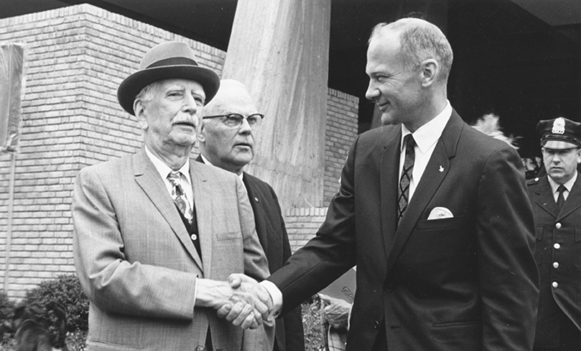
Edwin Aldrin Sr. (center), class of 1915, was a student of Goddard’s during his time at Clark, and became a pioneering aviator in his own right. According to son Buzz (right), it was his father’s connection with Charles Lindbergh, and, through him, the Guggenheim family, that netted Goddard the funding he needed to continue his rocketry experiments in Roswell, N.M. Buzz was the second astronaut to set foot on the moon. (At left, Goddard’s mentor, Dr. Charles Abbott, secretary emeritus of the Smithsonian Institution.)
Key Events

On October 19, 1899, at the age of 17, Goddard climbed this cherry tree and, in a daydream, envisioned traveling into space. He celebrated “Anniversary Day” every year until the end of his life.
Goddard launched the world’s first liquid-fueled rocket at his aunt’s farm in nearby Auburn in March 1926. A later rocket explosion caused him to be banned from conducting further launches in Massachusetts.
With funding from the Guggenheims, Goddard moved in 1930 to Roswell, N.M., where he produced larger and more complex rockets, even while remaining chair of Clark’s Physics Department.
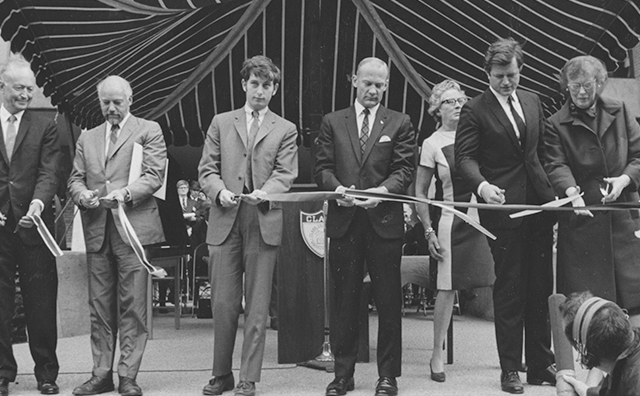
In May 1969, astronaut Buzz Aldrin was among the ribbon cutters at the opening of Clark University’s new Robert Hutchings Goddard Library, two months before he walked on the moon.
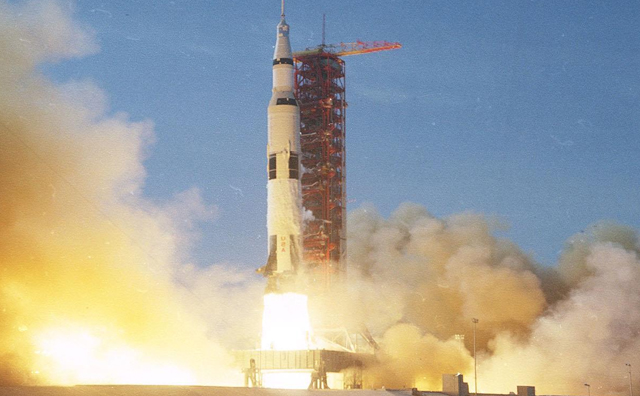
Apollo 11 was launched on July 16, 1969, carrying Commander Neil Armstrong, Command Module Pilot Michael Collins, and Lunar Module Pilot Edwin “Buzz” Aldrin.
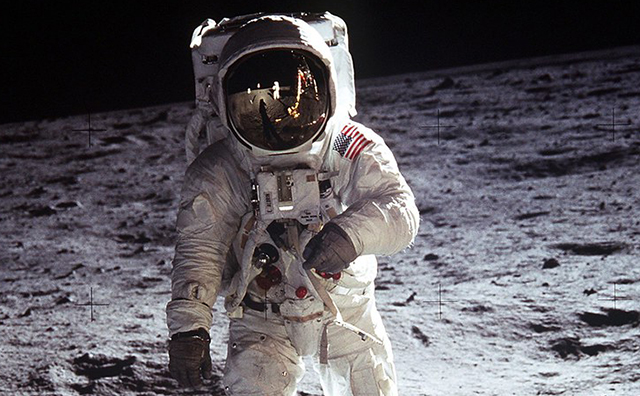
On July 20, 1969, Armstrong and Aldrin became the first two people to set foot on the moon. In the pocket of his space suit, Aldrin carried a miniature autobiography of Goddard, now housed in Clark’s archives.

